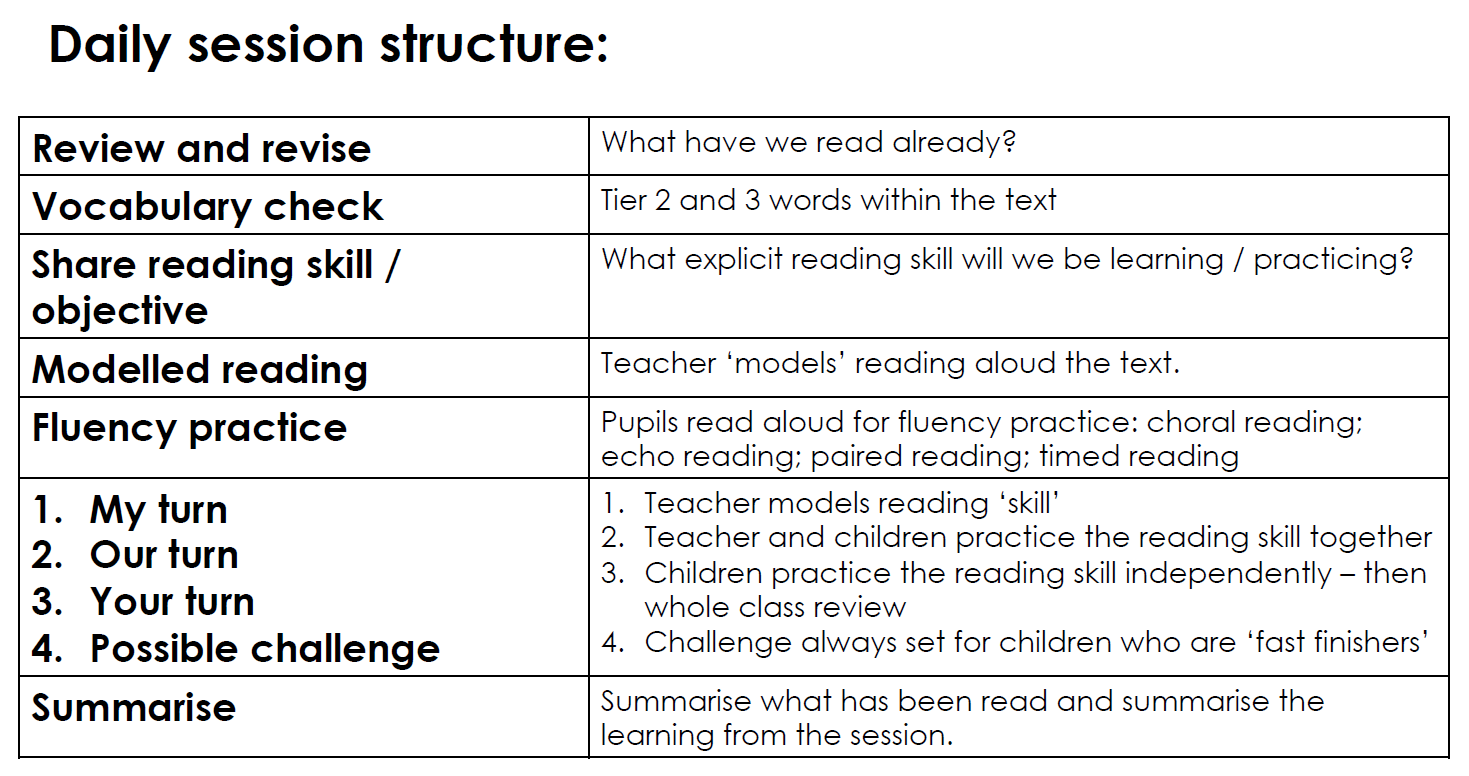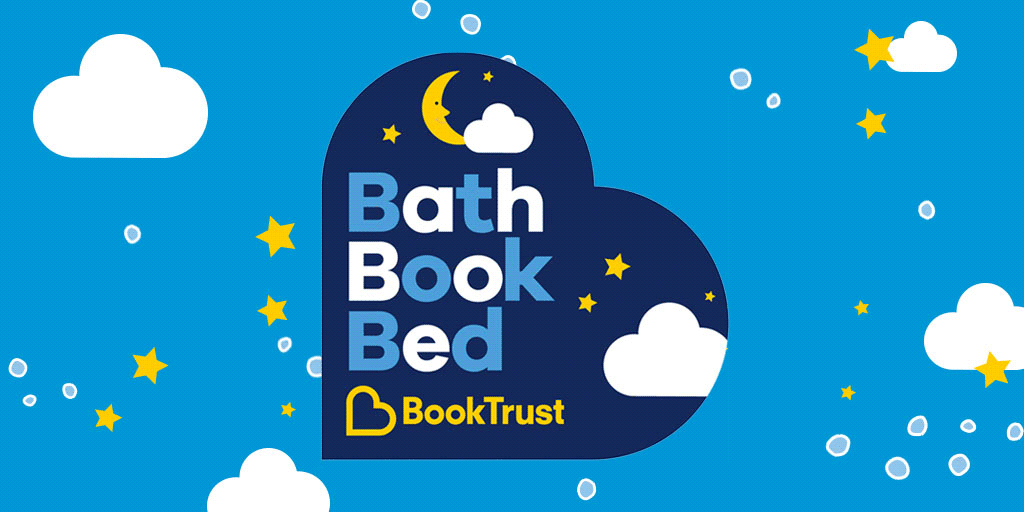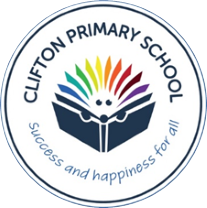Literacy - Reading at Clifton
Why is reading at the heart of our curriculum?
“The whole world opened to me when I learned to read” – Mary McLeod Bethune
How we teach Reading at Clifton
Curriculum Intent
At Clifton, we understand that learning to read and the development of a love of reading is vital. Reading at Clifton is our number one priority – so much so that our school logo reflects its importance. We plan a variety of opportunities to teach and inspire our children across the whole school with the aims of:
- developing and securing their reading skills so they can read confidently and with a secure understanding;
- fostering a love of reading by listening to and interacting with a wide variety of literature, non-fiction and poetry;
- building a community of engaged readers who turn to reading for pleasure and for meaning both within the school day and beyond;
- ensuring reading is a transferable skill so that children read widely across the curriculum;
- developing and delivering a consistent approach to the teaching of reading in order to close any gaps and to ensure a higher number of children attain the expected standard or higher;
- promoting a love of books and reading which will last a lifetime.
Curriculum Implementation:
We believe that reading is key to academic success and place reading at the core of our curriculum. We endeavour to instil in children an understanding that reading is a transferable skill that will benefit them in all subjects. We ensure that children read within and outside of reading lessons and that they read for a range of purposes: reading for practice; reading for meaning; reading for pleasure.
Phonics
In order for children to be able to access exciting texts, they need to be able to ‘decode’ the words on the page. This is taught through a system called ‘phonics’. At Clifton we use ‘Read Write Inc.’ to teach phonics and reading to children from Nursery to Year 2.

What is Read Write Inc?
Read Write Inc is a government approved phonics scheme that is rigorous, consistent and of the highest quality. It is designed to help children climb the higher rungs of the fluency ladder by accelerating reading accuracy and developing comprehension. Children only read books that contain sounds they have been taught and so quickly feel confident and successful readers.
Children have a daily phonics lesson that teaches them to:
- recognise all single letter sounds and the sounds they make.
- recognise ‘special friends’ sounds where two or more letters make a different sound eg. th, ch, sh, ff, ss, ll, ck, nk, ng ( and later on ai, ow, igh, ire …..)
- blend sounds to make words
- to think about a text, give their own opinions and find information to answer questions.
Children are also taught that some words in the English language cannot be sounded out and these are known as tricky red words. Children are taught to recognise these words on sight.
To find out more about ‘Read Write Inc.’ and how best to support your child click here
Children are also immersed in the joy of reading by being read to in class on a daily basis. They are introduced to high quality storybooks to inspire their imaginations and develop their comprehension skills. Class book areas encourage a love of reading and provide a range of captivating books that children are welcome to take home. Whole school ‘reading for pleasure’ sessions are timetabled into the school week.

Reading in Key Stage 2
In Years 3-6 we follow guidance from Cusp and as such we have a set of core texts that will form the core study for each academic year. These texts have been mapped carefully to ensure that a breadth of experiences, authors, texts and themes are addressed across the primary years. In addition to these texts, there are core poems that each year group will study in detail.
Each class has a whole class text that they use as a focus in daily reading lessons.
The children are then given the opportunity to develop their reading skills following the session structure below

Special Educational Needs
As part of our regular and ongoing assessments areas of difficulty for individual children are identified quickly and supportive measures put in place. These include:
- One to one or paired Fast Track tutoring for Read Write Inc phonics ( including reading, writing and spelling)
- Up to Year 4 children can be grouped with the daily RWI sessions at a level most appropriate for their needs.
- Aspects of Read Write Inc Fresh Start can be sued to develop fluency and confidence with children in Years 5/6.
- Precision Teaching – short individualised sessions that accelerate the reading of phonic sounds and individual words. This also involves parental involvement at home.
- On the day interventions carried out by the class teachers to address any difficulties or allow extra practise time to embed a skill.
- Additional reading time in school – reading to a known and trusted adult and discussing their reading.
Children receiving additional support at school each have an individual Support Plan which is created by the SEND lead and the class teacher every term and shared with parents. They are reviewed each term.
Curriculum Impact
Throughout each lesson formative assessment takes place and feedback is given to the children to ensure they are meeting the specific learning objective. Teacher’s then use this assessment to influence their planning and ensure they are providing a reading curriculum that will allow each child to progress.
Read Write Inc assessments take place every half term and are carried out by our Phonics Lead Teacher. Children are regrouped according to their level of phonics learning and are offered additional one to one tutoring sessions if needed.
In Years 2-6 children regularly access Accelerated Reader quizzes which monitor their reading level and enable teachers to ensure children are reading books accurately matched to their reading ability.
Termly reading assessment tests for children in Years 2 – 6 ensure we can accurately track each child’s progress and address any potential areas of difficulty.
How can you help your child to become fluent readers?
Children should be heard reading at home at least five times a week. Reading Records in each child’s book bag enable communication between home and school and it is helpful if parents can note down when they hear their child read.
For young children it is also vitally important that adults read to them. It helps develop a love of books, introduces children to vocabulary they cannot yet read themselves and demonstrates positive attitudes towards reading.
Reading to your children
The Book Trust website has a great section where you can find bespoke books, tailored to your likes – click HERE to take a look.
The Book Trust also publish guides to reading with your children and an annual guide to great books for all ages. Click on the images below for more details.
To see why is reading at home is so important and the ‘power’ it can have – take a look at the video below:
Remember the Three Bs’

